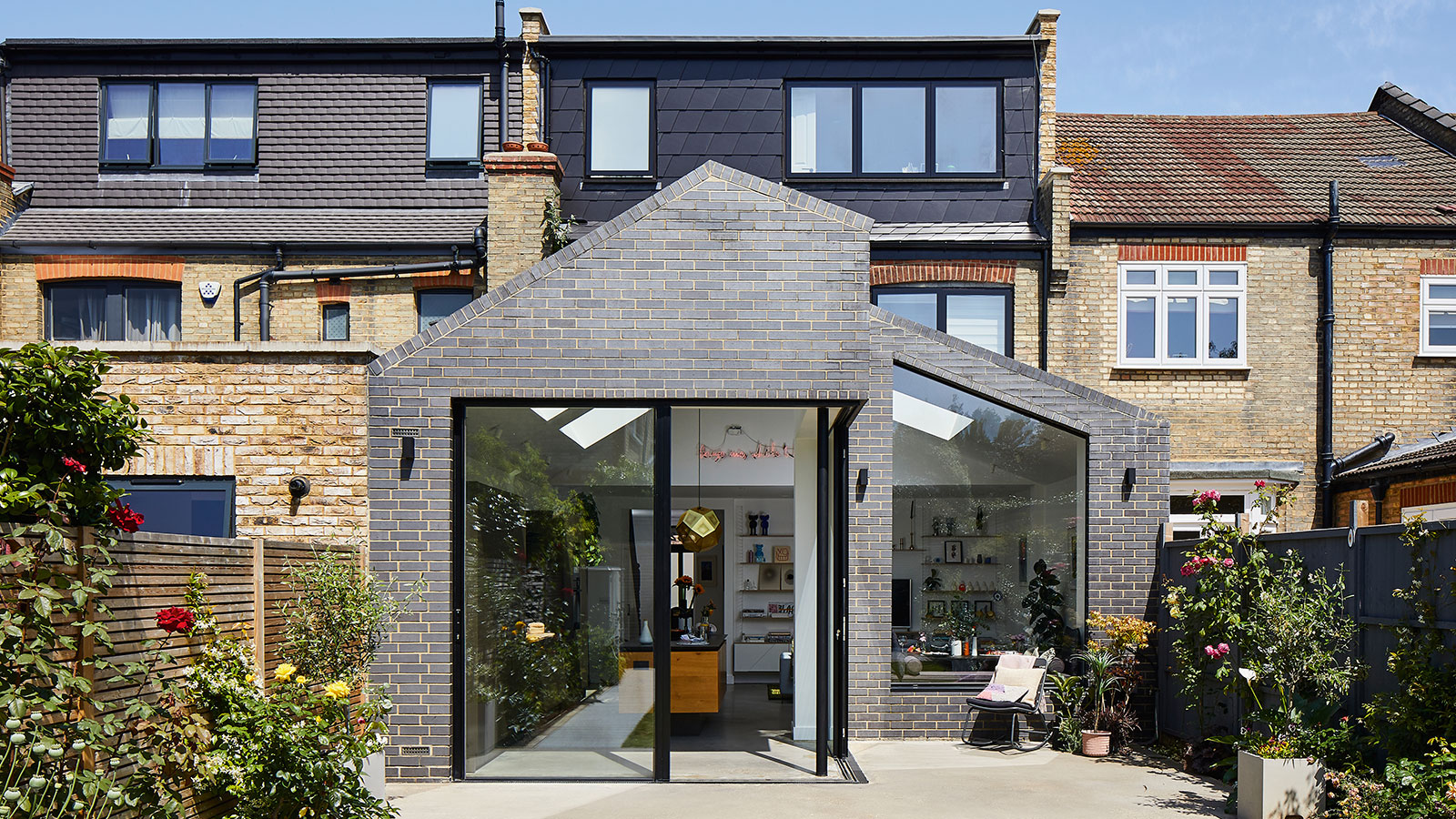Ground source heat pumps vs gas boilers: Pros and cons
Although comparing ground source heat pumps vs gas boilers means looking at very different systems, both of them heat homes. Here's how they stack up

Bring your dream home to life with expert advice, how to guides and design inspiration. Sign up for our newsletter and get two free tickets to a Homebuilding & Renovating Show near you.
You are now subscribed
Your newsletter sign-up was successful
If your heating system needs an upgrade and you're weighing up a ground source heat pump vs gas boiler, the chances are you'll know that the former will require a greater investment.
But do the pros of a ground source heat pump outweigh those of a gas boiler, making the former the only real option, or are there situations where a gas boiler is still a more practical option?
We take a look at ground source heat pumps vs gas boilers in more detail to help you with heating your home.
Ground source heat pump vs gas boiler: What's the difference?
In basic terms, ground source heat pumps and gas boilers are both different types of boilers. While ground source heat pumps harness the ground's natural heat, gas boilers rely on a source of natural gas. Both convert their 'fuel' into energy to feed your home's central heating and hot water systems.
But, that's mainly where the similarities end, with each system being vastly different in terms of what they look like, how they are installed, which type of homes they are suitable for and their pros and cons.
We asked the experts to explain a little more about grounds source heat pumps vs gas boilers to help you navigate towards the right choice for your self-build or home renovation project.
Ground source heat pumps: Pros and cons
While the size and specification of your ground source heat pump will depend on your home's energy requirements, there are two different ways in which they are installed.
Bring your dream home to life with expert advice, how to guides and design inspiration. Sign up for our newsletter and get two free tickets to a Homebuilding & Renovating Show near you.
As a ground source heat pump relies on the underground heat created by the sun warming the earth, the pipes logically need to be laid in the ground.
If you're wondering how much space does a ground source heat pump need, there are two options available for installing a GSHP. This is either a horizontal led system or a vertical one – known as a borehole system. The former requires enough space to lay it horizontally, while the latter needs much less space as it is vertically installed into the ground instead.
External pipework is connected to a heat pump inside your home (some are small enough to fit into a cupboard) and it may require an additional hot water cylinder. If your home is large and you require a bigger heat pump and cylinder, you may choose to have a separate plant room built to house it all.
Either way, your ground source heat pump considerations will involve both the inside and outside of your home. When it comes to choosing emitters, it can be connected to both main types – radiators and underfloor heating, although radiators may require some work – a point will cover later on.
Ground source heat pump pros
1. Reduced CO2 emissions
One of the primary reasons for using GSHPs is the reduction in CO2 emissions.
“Gas boilers produce carbon emissions direct from the home," says David Billingsley, Kensa sales director. "However, ground source heat pumps don’t emit any emissions at the point of use."
While some critics may point out that the electricity required to power them causes its own emissions, David Billingsley notes that, "as the electricity grid decarbonises over time, the associated CO2 emissions will continue to fall, making it increasingly better for the environment."
Ground source heat pumps can also be combined with solar photovoltaic panels making it possible to generate most, if not all of the heating and hot water you need through renewable and sustainable energy.

David has been working for Kensa since 2011, bringing with him a wealth of experience having already been involved in the heat pump industry since 2004. David manages the Sales team and works within both the domestic and commercial sectors.
2. Energy efficiency is far greater in GSHPs
“Where ground source heat pumps stand out most is their energy efficiency," says David Billingsley. This is linked to the co-efficient of performance scale which is the process used to measure how well a heating system performs. It is based on how many units of energy a system produces compared to how many units of energy it consumes.
"Typically, gas boilers are about 90% efficient," explains David Billingsley, "which would mean for each unit of energy they use, they produce 0.9 units of usable heat.
“Comparing that efficiency to Kensa’s ground-source heat pumps, no matter how cold it is outside, they range from around 300% efficiency with our smallest heat pump, the Kensa Shoebox, to well over 400% with the Shoebox NX and Evo ranges," says David.
"This means they are capable of producing more usable heat energy than they consume and this higher efficiency can translate to lower bills and a more effective home heating system."

3. GSHPs can also cool your home
With climate change predicting hotter weather, ground source heat pumps also have a feature that could save you researching air conditioning installation in the future.
“As an added bonus: ground source heat pumps, can be set up to provide very low-cost ‘passive cooling’ for buildings," says Dave Billingsley. "It's a feature unique to the technology that can help keep homeowners cool during the hotter summer months.”
4. GSHPs last longer
When it comes to lifespan, GSHPs have a projected 25 year life span, with the ground array pipework estimated to last around 100 years.
They are also pretty easy to look after, with the advice on how to maintain a heat pump recommending an annual service but little other maintenance.
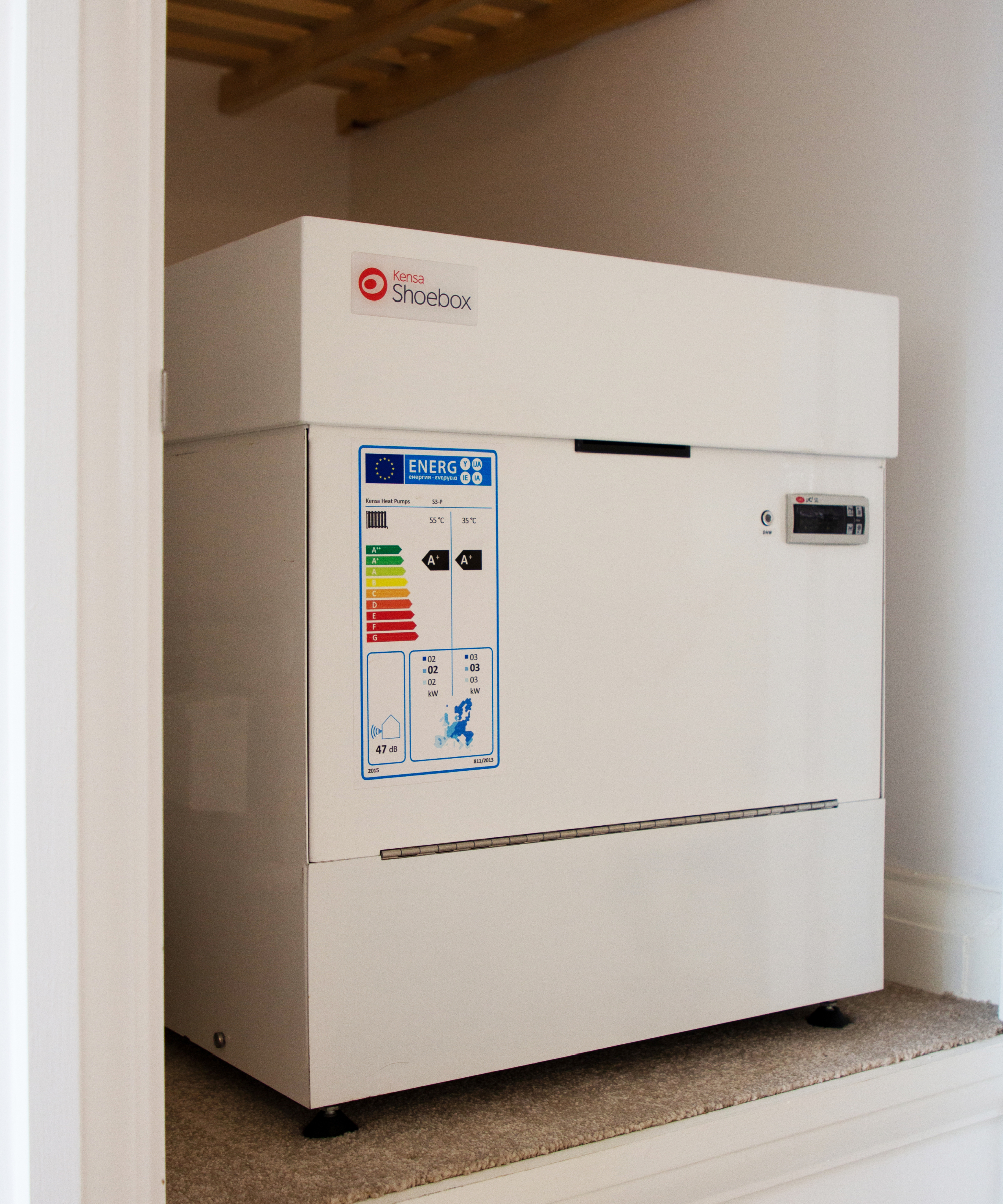
Ground source heat pump cons
1. GSHPs are expensive
Despite the Boiler Upgrade Scheme helping to soften the costs of installing a GSHP, there's no denying it's an investment.
With the average cost of a new gas boiler and installation starting at around £3,000 compared to GSHP costs starting from £15,000 upwards, even with funding, there's a vast difference.
2. Disruption inside and outside
If you are choosing a GSHP as part of your renovations, it will impact works both inside and outside your home. Your garden will be subject to heavy ground work to install the necessary pipes and inside, despite the fact when it comes to are heat pumps suitable for old homes the answer is yes, you may need to make changes to your home insulation and radiators in order for your new system to run as efficiently as possible.
"Naturally, insulation is beneficial where practicable for any heat source - gas or heat pumps, " says Paul Eveleigh, Kensa Managing Director, "as reducing heat losses reduces bills and therefore the size of the boiler or heat pump needed. Although, if making a choice, installing a heat pump is generally more effective in terms of reduced energy consumption than insulation," he adds.
"However, when replacing old, high-temperature heating systems such as gas boilers, it is sometimes necessary to upgrade some radiators," says Paul Eveleigh. "Although as radiators typically need replacing every 15 to 20 years, many properties installing ground source heat pumps may only need to make a few changes as the current radiators can be repositioned around the property to meet each room's heating requirements.
"If a property has a more modern condensing boiler that has been installed correctly," adds Paul Eveleigh, "the existing radiators can likely be re-used."
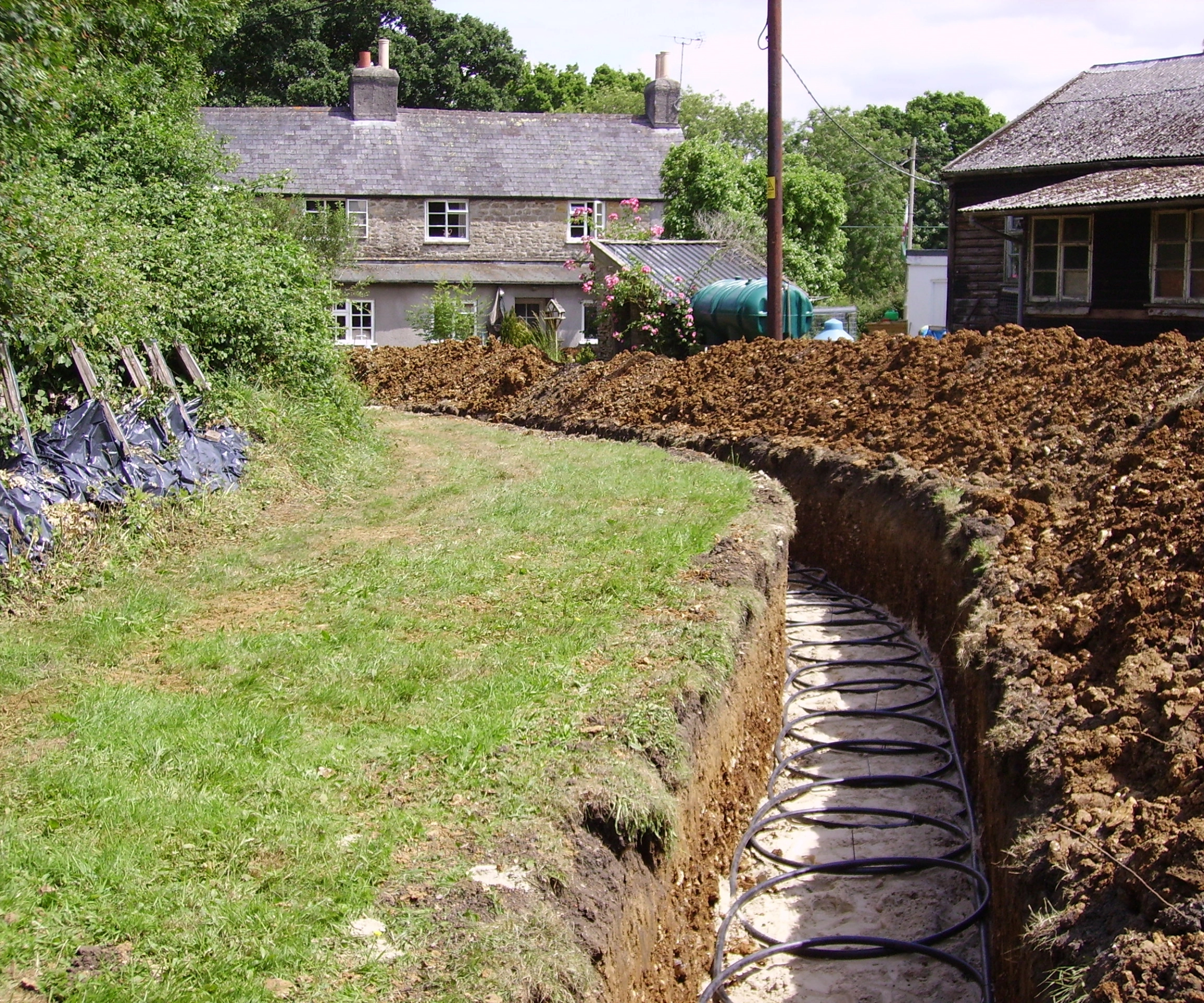

A qualified engineer with multi-sector experience, Paul joined Kensa as its Operations Director in 2020. In 2022, he was appointed as Managing Director to drive Kensa's ongoing growth and product portfolio development.
Gas boilers: Pros and cons
Gas boilers come in a variety of types - combi, heat only and system boilers. Combi boilers being the most popular system as it provides hot water and heat from one unit whereas heat only and system boilers also need a hot water cylinder.
Usually installed to heat radiators, as well as fires and gas kitchen appliances, the size of boiler and system is again based on the amount of energy your home requires. A qualified installer will help advise. With regards to boiler service costs, they are likely to be less than other forms of heating and many companies offer monthly care packages that include the cost of an annual service.
Although gas has been the most common form of heating for many years, it is however restricted to homes that are already or easily connected to the main gas supply. If you live rurally, you may not have the option of gas leaving you to consider gas boiler alternatives such as biomass boilers, heat pumps, LPG or oil.
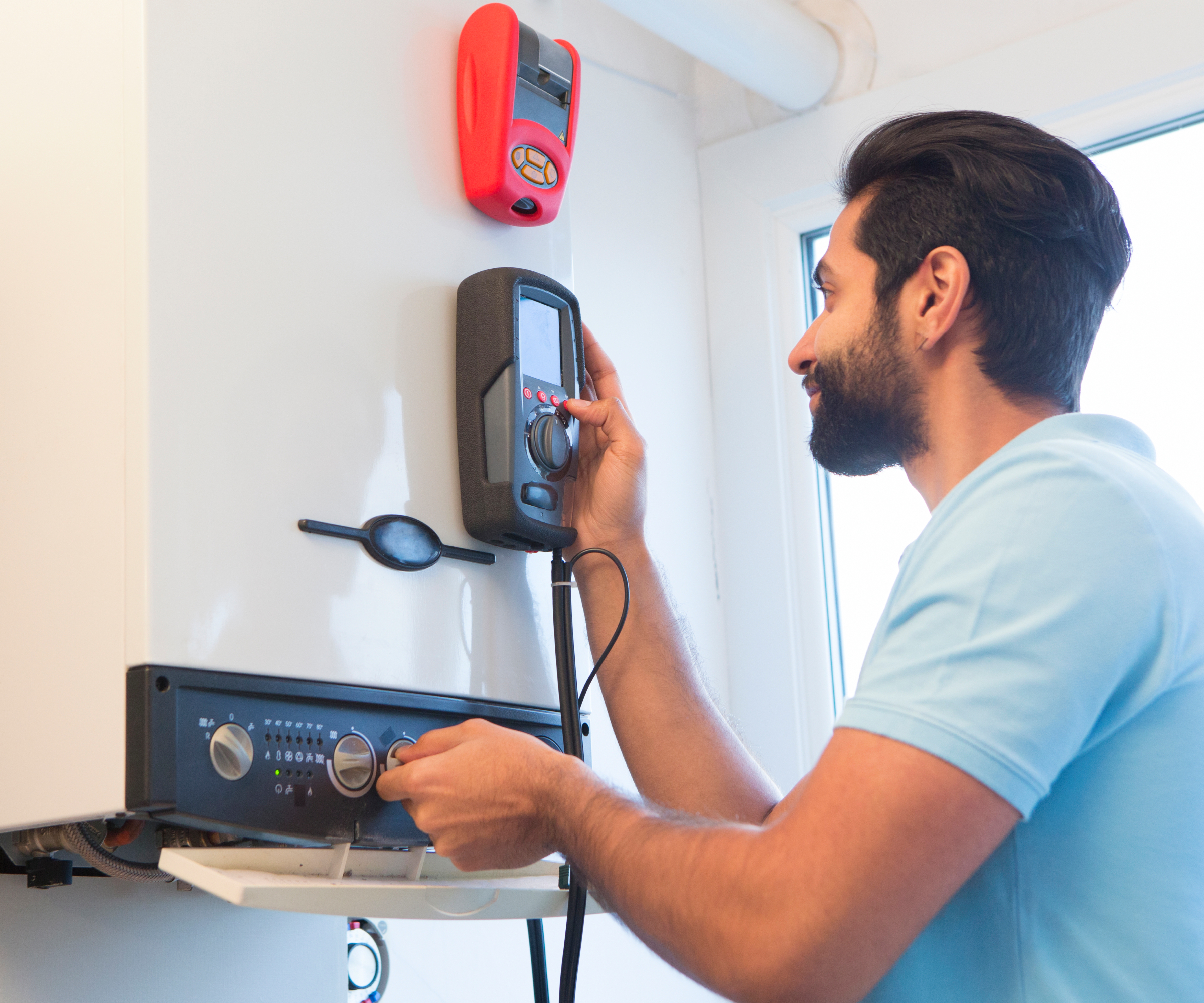
Gas boiler Pros
1. Installing a new gas boiler is cheaper and less disruptive
If you are renovating a home and replacing an existing gas central heating system, the amount of disruption will likely be less, cost less and can be managed according to your choices rather than necessity.
"The UK has traditionally relied on combi boilers, with around 17 million homes using them, while 7 million homes have conventional systems with a hot water storage cylinder," says Martyn Bridges, director of governmental and external affairs at Worcester Bosch.
Having a gas boiler is still far more common than the alternatives, so while you may choose different types of radiators to suit your design aesthetics, move their location or conside new fireplace ideas to enhance your interior, fundamentally, replacing the boiler, radiators and some pipework is all the work you'll need to arrange.
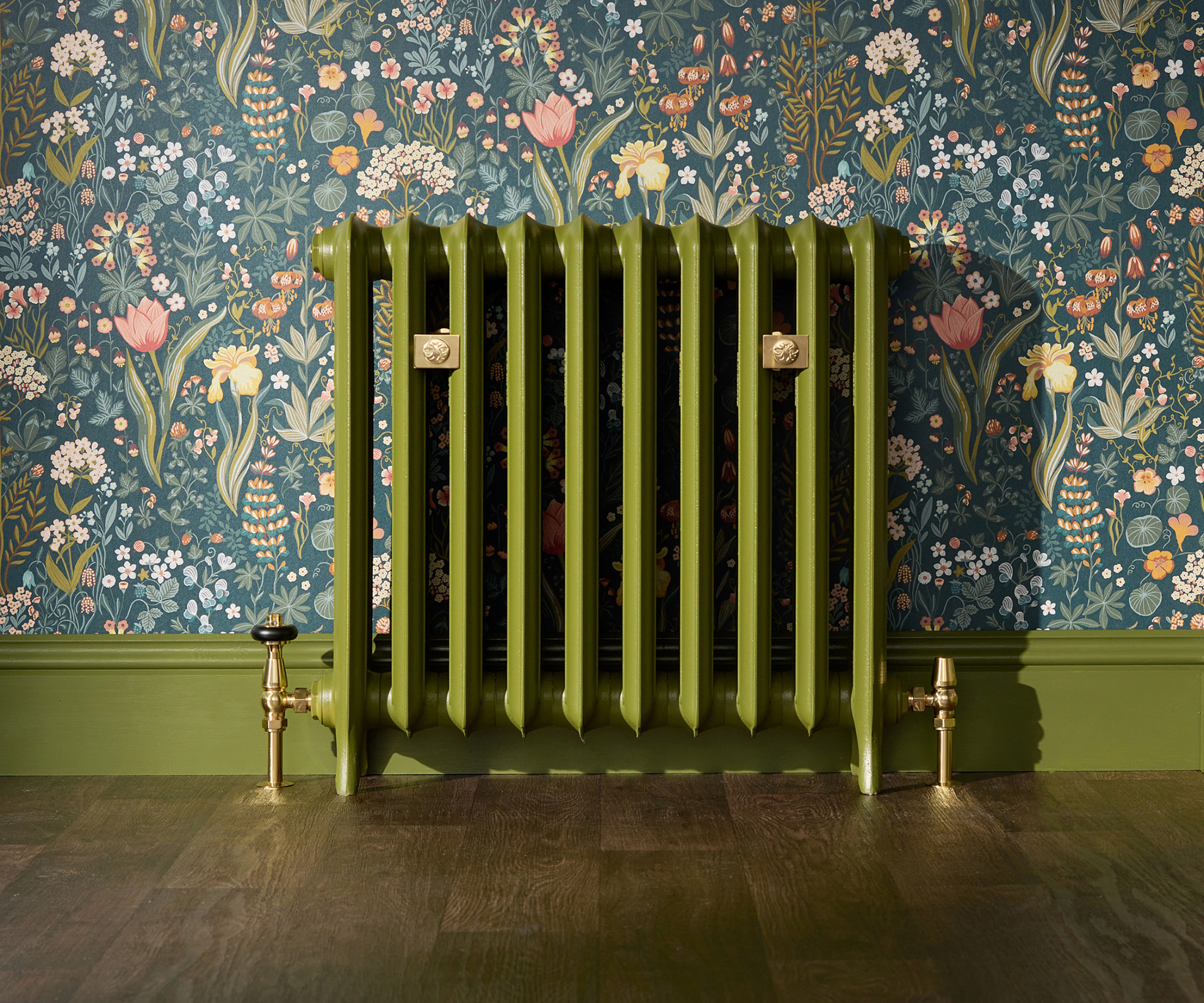

Martyn Bridges is the Director of Governmental and External Affairs at Worcester Bosch with over 40 years of experience in the heating industry. Martyn is a highly active, influential individual within heating and has held positions of high regard across the industry. This includes chairing the Technical Panel for the HHIC and being on the board for OFTEC, CIPHE and the Hot Water Association.
2. It is more suitable in an emergency replacement situation
"Installing a heat pump requires careful planning, including obtaining permission from the Distribution Network Operator, applying for the Boiler Upgrade Scheme grant, and performing a full heat loss calculation," says Martyn Bridges.
"This process can take several weeks, so in emergency situations for example, where a boiler has failed, homeowners may find it necessary to opt for a boiler replacement instead of waiting for a heat pump installation."
3. Gas boilers may be more suitable for your electricity supply
While your gas boiler relies on electricity to power it, it doesn't place a heavy load on your system. Therefore, Martyn Bridges notes that, "in some cases, the network provider may not allow the installation of a heat pump due to limitations with the incoming electricity supply."
So while having a connection to mains electricity may lead you assume a heat pump is suitable, it's worth checking with an expert before you proceed.
4. Frees up space inside your home
"For homes with a combi boiler, switching to a heat pump may require finding space for a hot water storage cylinder," says Martyn Bridges, "which can be challenging in smaller homes without causing disruption. It can mean sacrificing valuable space that isn’t needed with a combi boiler."
With hot water cylinders often located in airing cupboards on landings or in lofts, it can also be helpful if you are looking for loft conversion ideas and need to find ways to increase space or add stairs.

Gas boiler cons
1. Expensive to run
While cheaper to install, no-one can deny the rising cost of fossil fuels has become prohibitive for many and shows no signs of slowing down. Installing a gas boiler when you have other options available needs serious consideration before you decide if it's the right solution for you.
Don't forget that if you are adding a double storey extension for example, you will also need to work out your new energy requirements in order to calculate your projected bills as they will potentially increase.
2. Gas boilers are being phased out
Although there has been an extension to the gas boiler ban to 2035, meaning from this date onwards new build homes will no longer be fitted with gas boilers, there will eventually come a point when a comparison between ground source heat pumps vs gas boilers is redundant.
While you will still be able to purchase a gas boiler until 2035 and no-one will be required to legally remove their gas boilers by this date, the ban has been implemented to encourage every home owner to transition to a more sustainable form of energy – primarily heat pumps (ground source or air source heat pumps) or hydrogen boilers.
The Boiler Upgrade Scheme was set up to help with the increased costs associated with installing and purchasing alternative heating systems, but this will end in 2028. However, despite the current difference in the costs of air source and ground source heat pumps vs gas boilers, the government claims it will work with suppliers so that by 2030 the cost of heat pumps is in line with gas boilers.
If after weighing up a ground source heat pump vs gas boiler you want to check there aren't any other external elements of a GSHP which will affect the exterior appearance of your home, Paul Eveleigh provides some reassurance.
"Ground source heat pumps are discreet and housed inside with no visible external components, which is especially important for those wanting to maintain their home's external appearance during renovations."
For a more in-depth and technical look at your options for replacing your gas boiler with a more sustainable solution, read our heating expert, David Hilton's guide to heat pumps vs gas boilers.

Sarah is Homebuilding & Renovating’s Assistant Editor and joined the team in 2024. An established homes and interiors writer, Sarah has renovated and extended a number of properties, including a listing building and renovation project that featured on Grand Designs. Although she said she would never buy a listed property again, she has recently purchased a Grade II listed apartment. As it had already been professionally renovated, she has instead set her sights on tackling some changes to improve the building’s energy efficiency, as well as adding some personal touches to the interior.
